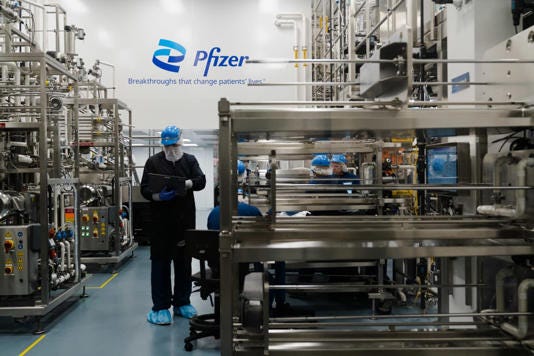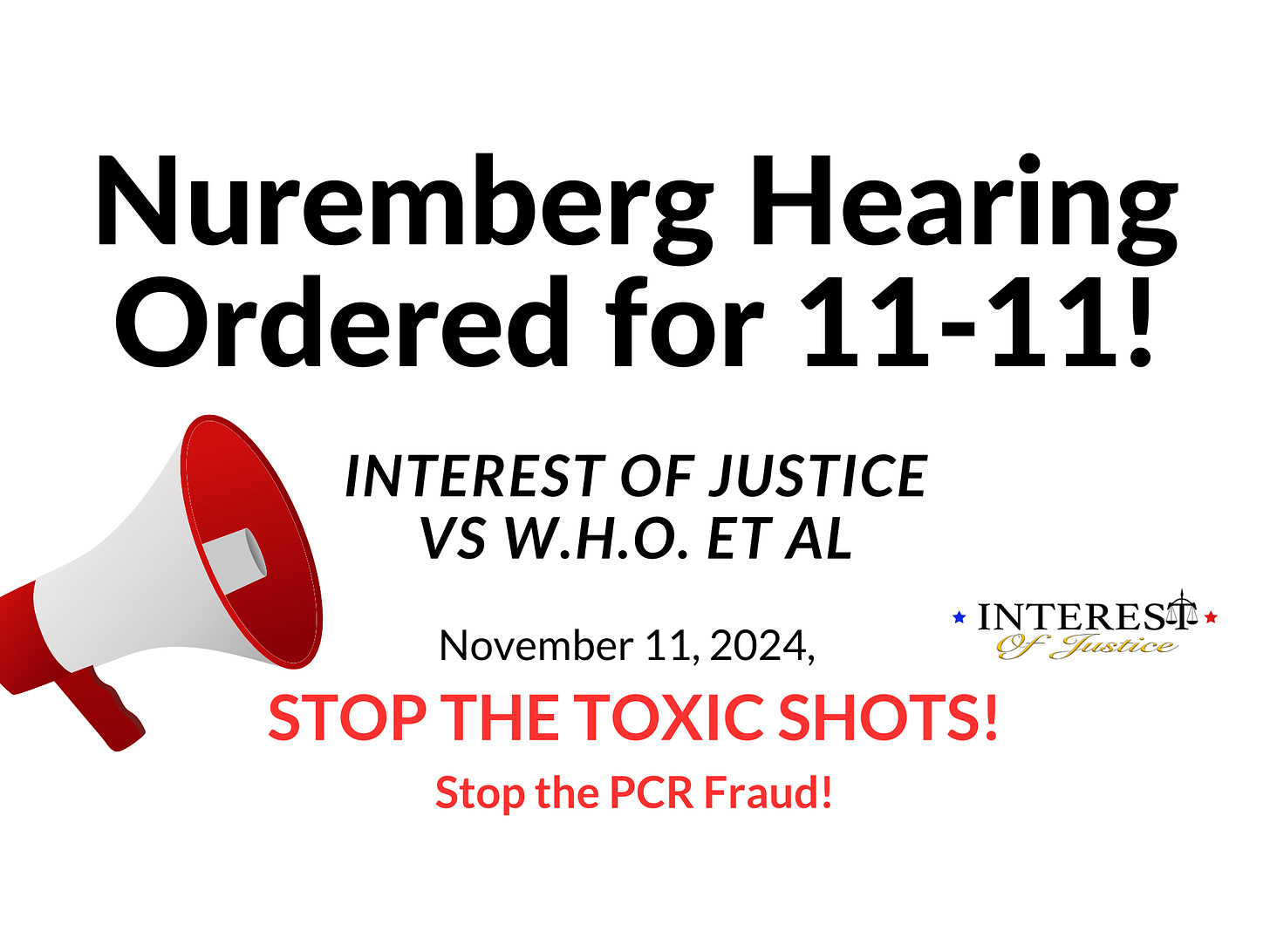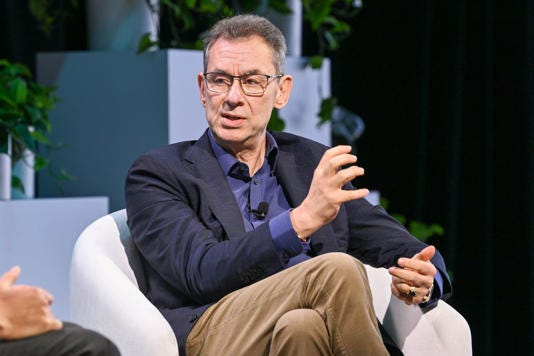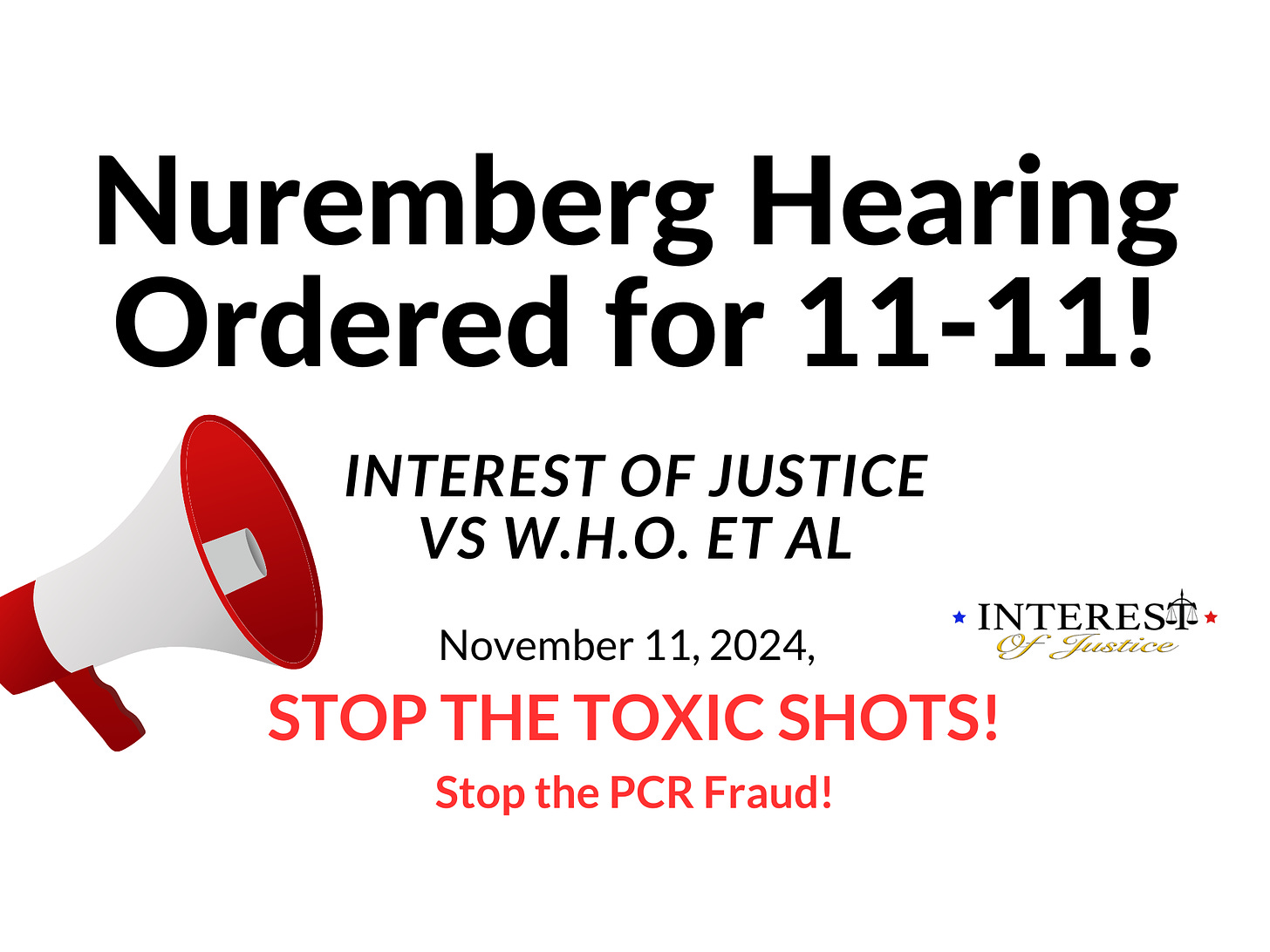Pfizer’s Activist Battle Might Fizzle—but Its Stock Probably Won’t
WSJ shills for Pfizer and tries to drive investors... "After losing nearly half of its market value since its Covid-19 peak, Pfizer’s stock represents a bargain for patient investors". WHAT A BARGAIN!
📌To Support Interest of Justice, Dr. Yeadon & Sasha Latypova in the November 11 ⚖️ Nuremberg Hearing ⚖️ with the CR Health Minister and Presidents Office to examine the WHO covid “vax” breaches you can contribute HERE: SuetheWHO.org/donate
Pharma Shill writes WSJ Article?
Let’s see if we can get investors for Pfizer by repeating “Pfizer’s Activist Battle Might Fizzle—but Its Stock Probably Won’t” - WSJ Shilling for Pilling
WSJ: For Pfizer Chief Executive Officer Albert Bourla, the activist campaign launched by Starboard Value marks a pivotal moment in his career.
For shareholders, the activist push is largely a distraction as the pharmaceutical company has limited options to implement immediate changes that would drive significant growth. That doesn’t mean investors should abandon hope in the stock, though.
After losing nearly half of its market value since its Covid-19 peak, Pfizer’s stock represents a bargain for patient investors. As Starboard highlighted in its 74-page presentation on Tuesday, Pfizer now trades at roughly 10 times its projected 2025 earnings, which is lower than most of its peers, with the exception of GSK and Bristol-Myers Squibb. Additionally, this valuation corresponds with an industry-high dividend yield of around 6%—one that management insists is sacrosanct. That would mean there is limited downside to holding the stock. [UMMM MORALLY? - IOJ query]
On Tuesday, Starboard Chief Executive Jeff Smith, whose fund has a roughly $1 billion stake in Pfizer, laid out his critique of management. He contended that Pfizer has destroyed value through poor investments both in research and development and some $70 billion in acquisitions. He called on the board—currently aligned with Bourla—to hold management’s feet to the fire to deliver better returns. But he refrained from calling for Bourla’s replacement. That conciliatory stance was somewhat expected after two former top Pfizer executives withdrew from the campaign, weakening Smith’s hand.
Related video: Chart of the Day: Pfizer (CNBC)
Let's talk Pfizer, we've called it our Chart of the Day: Pfizer
[OMG how much did Pfizer pay for this WSJ piece? - IOJ]
Smith’s arguments will resonate with frustrated shareholders, but he offered very little in the way of a path forward. Pfizer currently ranks high in industry leverage, with a ratio of net debt to earnings before interest, tax, depreciation and amortization exceeding five times. It also has already pledged to cut costs by billions of dollars a year. Starboard may yet extract an additional round of cost cuts.
The company certainly can become more judicious in how it deploys capital going forward. But unfortunately, there is no way to turbocharge innovation, which in pharma can take many years to bear fruit. Pfizer’s $43 billion bet on cancer biotech Seagen could well prove prescient in the long run, but we won’t know for a while.
“An activist cannot make Pfizer innovate more quickly or in a more productive fashion,” says David Risinger, a Leerink Partners analyst.
The good news is that with so much pessimism already factored into the shares, any positive surprises from the pipeline or earnings results could lead to significant share appreciation. For example, ponsegromab, a monoclonal antibody under investigation for treating weight loss and muscle wasting in cancer patients, has shown promising mid-stage results. Given the lack of effective treatments for this condition, the market opportunity could be substantial, according to Risinger. Tim Opler, a managing director at Stifel, has even suggested that ponsegromab could become a “monster” drug, with potential annual sales reaching $10 billion.
Even if Pfizer’s pipeline fails to compensate for the decline of blockbuster drugs going off-patent, the stock still possesses defensive qualities for a portfolio during market downturns. Unlike bonds, which provide no safeguards against potential inflationary cycles, Pfizer’s revenue offers a robust hedge, driven by the unique pricing dynamics of the pharmaceutical industry. [price fixing dynamics like the Mafia - Guido - IOJ]
One pressing question for Bourla and the board is whether they need to articulate a clearer strategy regarding the largest healthcare category of all time: obesity. Pfizer is a major player in primary-care medicine, and the weight-loss drug category represents a significant opportunity in this space, with analysts suggesting it could be worth more than $100 billion in annual sales.
The company had previously argued its experimental obesity pill could eventually become a $10 billion a year product, but it has faced setbacks in developing the drug, called danuglipron. Despite these challenges, Pfizer hasn’t abandoned the pill and is currently working on a reformulated, once-daily version. Analysts anticipate the company will announce data from early-stage trials and outline its objectives for the drug sometime next year.
Should these studies fall short once again, there will be substantial debate on Wall Street about whether Pfizer should continue trying to compete with Eli Lilly and Novo Nordisk, the makers of Zepbound and Wegovy, respectively, in this arena. If it decides to acquire its way into this market, there is no shortage of companies developing weight-loss drugs, both in the public and private markets.
The activist battle may yet yield some changes, but none of them sound transformative. Luckily, shareholders don’t need to wait for miracles to happen.
Write to David Wainer at david.wainer@wsj.com
Story by David Wainer
Question?
How many of you think this is an organic write up? How many think Pfizer paid WSJ to write this load of crap to get investors to have faith in the fledging companies long term schemes?
On November 11, a pivotal hearing with IOJ and Dr. Yeadon will address the World Health Organization’s (WHO) Emergency Use Listings (EUL) authorizations for COVID-19 vaccines and PCR tests.
This hearing is the only current legal process in the world with the potential to delist these EUL products, which are authorized and, in many cases, mandated for global use based on WHO’s safety and necessity claims.
By examining the integrity of these EUL authorizations, this hearing could reshape global health policy by setting new standards for safety, informed consent, and transparency.
The outcome may lead to the delisting of EUL-authorized products where rigorous safety practices have been compromised, marking a critical step toward restoring health ethics and human rights protections globally.
📌To Support Interest of Justice, Dr. Yeadon & Sasha Latypova in the November 11 ⚖️ Nuremberg Hearing ⚖️ with the CR Health Minister and Presidents Office to examine the WHO covid “vax” breaches you can contribute HERE: SuetheWHO.org/donate












Market valuations should be the least of concerns right while living through the mass slaughter of humanity by: Medicines,bombs, and starvation. I would just wish for all these greedy monsters to be confined together on a remote island, carrying only their money??
One adverse judgement against Pfizer and the company could be finished (just like, very sadly, many of its customers)
I would bet if any pharma co is going to be thrown under a bus, it will be Pfizer, if only to save Government funded Moderna but in my view without radical change, big pharma as we've known it is finished and that's before you add in the RFK factor.
It will take time to die, just far faster under RFK, but they are finished.
The industry committed a slow suicide with its Covid products. Serves them right.